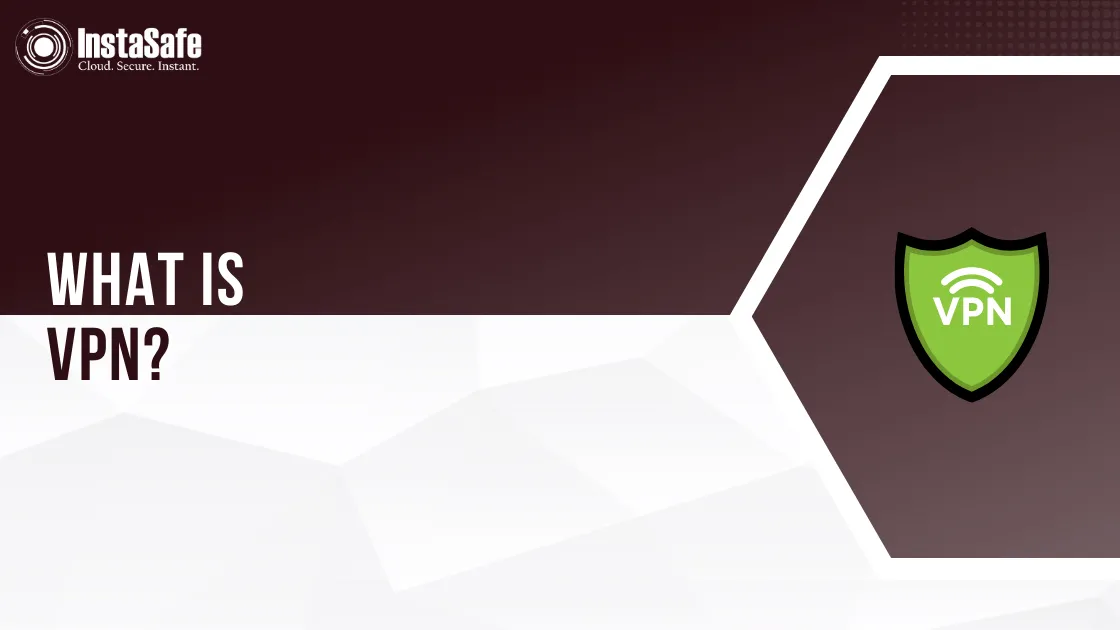What is a VPN?

In the current world, people are increasingly becoming more connected than ever. With the rise of the internet and the growth of online services, individuals and businesses have access to an unknown quantity of information and resources. Still, this increased connectivity also means increased security pitfalls. One of the most popular styles for securing online connections is through a VPN or Virtual Private Network. In this blog, we'll discuss what a VPN is, how it works, and why it's important.
What is a VPN?
A Virtual Private Network( VPN) is a technology that creates a secure and translated connection between two biases over a public network similar to the internet. The VPN acts as a lair in this manner and makes it delicate for third parties to block and access sensitive information. VPNs can be used for numerous purposes, but their main function is to give a secure connection for internet business. This can include particular dispatches, online banking, or penetrating sensitive business information. With a VPN, the data transmitted over the internet is translated and defended, icing that only the sender and philanthropist have access to the information.
How Does a VPN Work?
A VPN works by creating a secure connection between two biases. When a user connects to a VPN, the VPN customer software on the user's device encrypts all the data being transmitted over the internet. This translated data is also transferred to a VPN server, which decrypts the data and forwards it to its final destination. To produce a secure connection, a VPN uses several different factors:
Encryption: VPNs use encryption to cover data from unauthorized access. The data is translated at the transferring device and also deciphered at the entering device. Tunneling: VPNs produce a lair between the sender and the receiver, allowing data to be transmitted securely over the public internet.
Protocols: VPNs use different protocols to produce a secure connection. Some of the most common protocols include OpenVPN, L2TP/ IPSec, and PPTP.
Why is a VPN Important?
A VPN is important for several reasons:
Security: VPNs give a secure connection for online businesses, guarding against hackers and other vicious actors who may try to block or pierce sensitive information.
Privacy: VPNs give a position of sequestration by masking the user's IP address and position. This can help cover against surveillance and shadowing by advertisers or other third parties.
Access: VPNs can be used to access geo-confined content or to bypass internet suppression in certain regions. This can be particularly useful for people traveling abroad or for individuals living in countries where internet access is confined.
Business: VPNs are an important tool for businesses, particularly those that have remote workers or workers who need to pierce sensitive information from offsite locales. VPNs can help cover business information and keep it secure.
Public Wi-Fi: VPNs are especially important for users who constantly connect to public Wi-Fi networks. Public Wi-Fi is frequently relaxed, making it easy for hackers to block data. A VPN provides a redundant subcaste of security for users who constantly connect to public Wi-Fi.
Challenges of Using a VPN:
While VPNs offer numerous benefits, there are some challenges associated with using a VPN.
Some of the most common challenges includes:
Slow Connection Because a VPN encrypts all data being transmitted, it can decelerate down internet pets. This can be particularly conspicuous when streaming videotape or downloading large lines.
Setup and Configuration Setting up and configuring a VPN can be challenging for some users, especially those who aren't technically smart. Cost: Some VPN services can be expensive, particularly for businesses that need to buy licenses for multiple users.
What is Biometrics Authentication | What is Certificate Based Authentication | Device Bind | What is Device Posture | Always on VPN Solutions | What is FIDO Authentication | FIDO2 Authentication | Ldap and Saml | MFA | Password less Authentication | Radius Authentication Server | Security Assertion Markup Language | SAML vs SSO | Software Defined Perimeter | Devops and Security | How to Secure Remote Access | VPN Alternatives | ZTNA vs VPN | Zero Trust | ZTNA | Zero Trust Application Access
